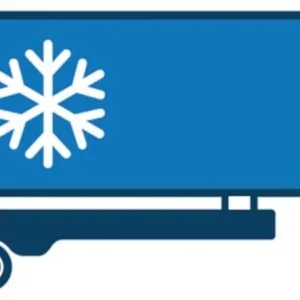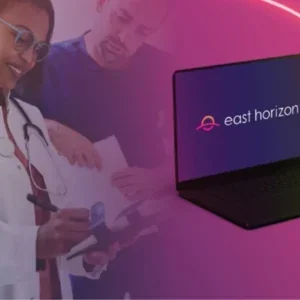
The transportation of pharmaceutical products is critical to the healthcare industry. These products require specialised handling to maintain their safety and efficacy. As the demand for pharmaceuticals continues to grow globally, it is essential to ensure that they are transported in a safe and secure manner. With air cargo being one of the most common modes of transportation for temperature-controlled pharma products, it is crucial that the industry works to establish and adhere to standards and certifications that ensure the quality and safety of pharmaceutical air cargo shipments. The pharmaceutical industry moves more than $1trn worth of cargo every year. Forecasts suggest this could rise to $1.5trn by 2023. The continued transport of Covid-19 vaccines will certainly boost this number further. Being able to offer certified best practice in this extremely valuable sector could make a significant difference to a cargo carrier’s bottom line.
Standards and certifications play an important role in the transportation of pharmaceutical products by providing a set of requirements and guidelines for the handling and shipment of these products. These guidelines ensure that all aspects of the transportation process are carried out with the utmost care and attention to detail, from the packaging and labelling of the products to the handling and storage of the cargo during transit. The International Air Transport Association (IATA) has established a set of standards and guidelines, such as the Temperature Control Regulations, for the transportation of pharmaceuticals. These regulations ensure that the products are handled with care and transported in a way that meets the required standards.
Sensitive and specialised
Pharmaceutical products are sensitive and require specialised handling. Any deviations from the required transportation conditions can harm the quality of the products and put patients’ health at risk. As a result, there is a need for robust transportation standards to ensure the safe and secure transport of pharmaceutical products.
The transportation of pharmaceutical products involves several risks, such as temperature excursions, contamination, theft and mishandling. These risks can lead to product spoilage, damage or loss. It’s been estimated by the IQVIA Institute for Human Data Science that the industry loses at least $15bn worth of products each year to temperature deviations that force cargo disposal. With additional costs, such as labour expenses for damage analysis and product replacement, the annual cost rises to more than $35bn. IATA’s set of standards and guidelines for the transportation by air of pharmaceuticals mitigate these risks.
IATA certifications ensure that the products are handled with care and transported in a way that meets the required standards. These certifications cover all aspects of the transportation process, though these aspects depend upon the specifics of the journey, generally they can be seen as packaging, labelling, documentation handling and storage. By following these standards, the risk of product spoilage or loss is significantly reduced, and the quality of the products is maintained.
Temperature Control Regulations
Temperature control is crucial for the transportation of pharmaceutical products. Temperature excursions can cause irreversible damage to the products, rendering them ineffective or even harmful to patients. This is especially important to note given the growth in cell and gene therapy products, which are expensive to manufacture and have much more stringent temperature-control requirements than small molecule drugs. The challenge of transporting living medicines has been made evident during the current pandemic, as some companies required their vaccines to be kept at ultra-low temperatures during transit. IATA Temperature Control Regulations provide requirements and guidelines for the transportation by air of pharmaceutical products that require temperature control.
The Temperature Control Regulations cover all previously mentioned aspects of temperaturecontrolled transportation, including packaging, labelling, documentation, handling and storage. These guidelines ensure that the products are transported within their required temperature range and that any deviations from the required conditions are promptly detected and corrected.
The Temperature Control Regulations also provide recommendations for the use of temperature-controlled packaging and data loggers and tracking devices. Packaging guidelines include guidance on when to use passive containers – those that employ phase-change materials instead of electrical cooling – and active containers that take advantage of electrical cooling to maintain the temperature of cargo. Data loggers and devices enable the monitoring of, for example, temperature and humidity, during transportation and provide real-time data on any deviations from the required conditions. IATA has developed a guidance document on Battery Powered Cargo Tracking Devices / Data Loggers and recommended practices on the approval and the use of such devices as part the Interactive Cargo Task Force.
Excellence in pharma logistics
IATA’s Centre of Excellence for Independent Validators in Pharmaceutical Logistics (CEIV Pharma) is a certification programme that recognises companies that demonstrate excellence in the transportation of pharmaceutical products. The programme provides a globally consistent and recognised standard for the transportation of those products. CEIV Pharma addresses the industry’s need for more safety, security, compliance and efficiency, by the creation of a global product handling certification. CEIV Pharma encompasses, or even supersedes, many of the existing pharmaceutical standards and guidelines such as: IATA Temperature Control Regulations and United States Pharmacopeia Standards. The full list of certified companies is available via IATA ONE Source, the industry platform for validated aviation capability and infrastructure information.
The CEIV Pharma certification covers all the same aspects of the transportation process that the Temperature Control Regulations do. Companies that receive this certification have demonstrated their ability to handle pharmaceutical products with care and maintain their quality during transportation.
The CEIV Pharma certification programme provides training for companies to improve their transportation processes. This training enables companies to comply with the required standards and improve their transportation processes to meet the needs of the healthcare industry.
The future of IATA standards
IATA standards play a critical role in ensuring the safe and secure transportation of pharmaceutical products. These standards provide guidelines for each individual stage involved in transportation and ensure that the products are stay safely within their required temperature range. By following these standards, companies can ensure they are supplying products in their most refined condition, expel the fear of loss or damage and in doing so, improve the efficiency of the supply chain.
In the future, IATA standards are expected to evolve to meet the ever-changing needs of the healthcare industry. This makes it imperative for companies to stay up to date by using the latest edition of the IATA Temperature Control Regulations. As the demand for pharmaceuticals continues to grow globally, it is essential to ensure that they are transported in a safe and secure manner. IATA standards and certifications will continue playing a critical role in meeting this demand and ensuring that patients receive safe and effective medications.
Benefits of using IATA standards
Using IATA standards for pharma air cargo shipments provides several benefits for the healthcare industry:
■ Improved product quality: IATA standards ensure that pharmaceutical products are handled with care and transported in a way that maintains their quality. This prioritisation and care ensures that customers receive safe and effective medications.
■ Reduced risk of product loss or damage: IATA standards provide requirements and guidelines for the transportation of pharmaceutical products that reduce the risk of product loss or damage. These standards cover packaging, labelling, documentation, handling, storage and any other specific aspects of transportation.
■ Improved supply chain efficiency: By following IATA standards, companies can improve their transportation processes and reduce the time and cost of transporting pharmaceutical products. This improves the efficiency of the supply chain and ensures that medications are delivered to patients in a timely and costeffective manner.
■ Regulatory compliance: IATA standards ensure that companies comply with the regulatory requirements for the transportation of pharmaceutical products. By following these standards, companies can avoid penalties and regulatory action and maintain their reputation in the healthcare industry.
IATA’s Guidance for Vaccine and Pharmaceutical Logistics and Distribution includes chapters on:
■ The Constraints and Risks stakeholders need to pre-empt and overcome in order to deliver vaccines where they are needed with no wastage or loss.
■ The Role of NGO’s in the vaccine distribution and procurement process. While NGO’s share the common objective of ensuring that countries have safe, fast and equitable access to the vaccine when available, the role of each organisation varies.
■ Industry Preparedness for vaccine distribution, which includes information that governments and stakeholders need to consider:
— Capacity & Connectivity: The global route network has been reduced dramatically from the pre-Covid 24,000 city pairs. Governments need to re-establish air connectivity to ensure adequate capacity is available for vaccine distribution.
— Facilities and infrastructure: Vaccines need to be shipped and stored in a temperature-controlled environment. Some types of refrigerants are classified as dangerous goods. Considerations include availability of infrastructure, facilities and equipment and trained staff to handle time- and temperature-sensitive vaccines.
— Border Management: Timely regulatory approvals and storage and clearance by customs and health authorities will be essential. Priorities for border processes include introducing fast-track procedures for overflight and landing permits for operations carrying the Covid-19 vaccine and considering tariff relief to facilitate the movement of the vaccine.
— Security: Vaccines are highly valuable commodities. Arrangements must be in place to ensure that shipments remain secure from tampering and theft. Processes are in place already, but the huge volume of vaccine shipments will need early planning to ensure that they are scalable.





